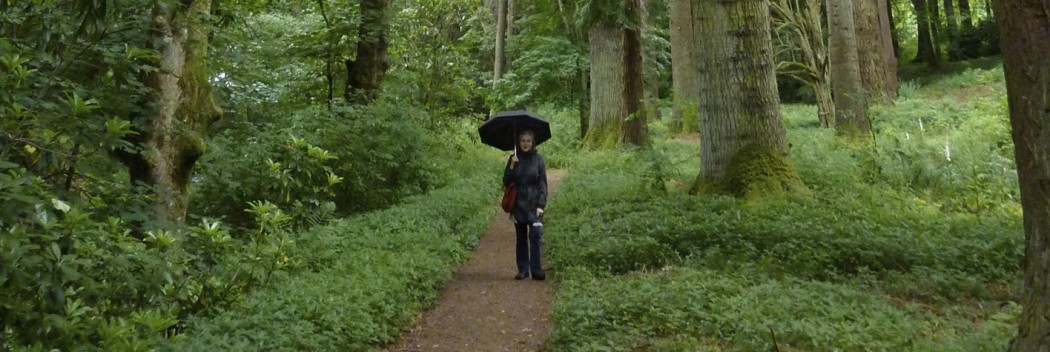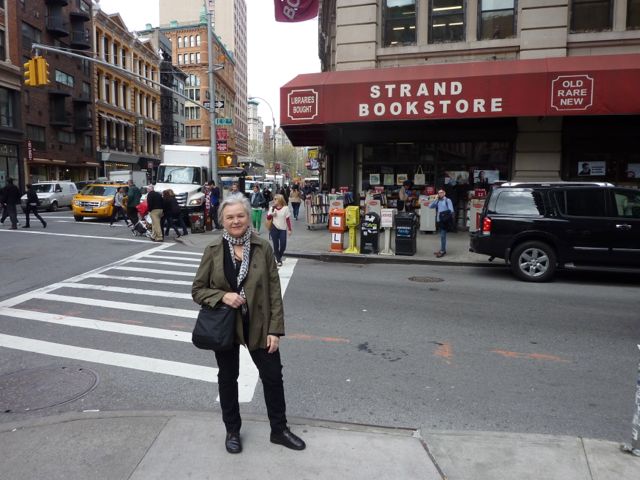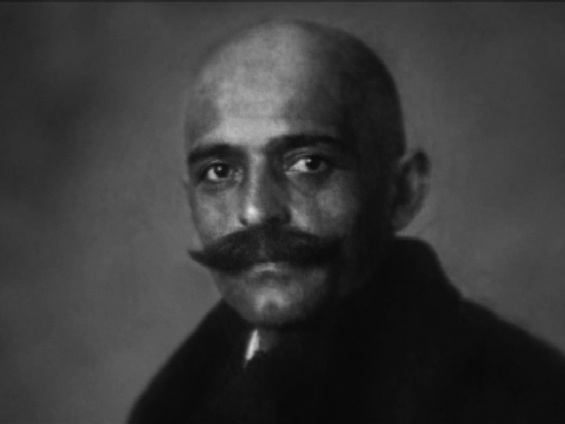Books may not change our suffering, books may not protect us from evil, books may not tell us what is good or what is beautiful, and they will certainly not shield us from the common fate of the grave. But books grant us myriad possibilities: the possibility of change, the possibility of illumination.
Alberto Manguel
Before arriving in New York, I was pretty sure the traditional book was slowly dying. So many bookstores have closed over recent years, so many people are downloading books, newspapers and journals to their e-book readers, libraries are becoming information hubs rather than book repositories and, almost everyone seems to Google instead of consulting a hard copy reference book. The publishing industry is undoubtedly undergoing massive changes due to digital technology, and I really thought that when I arrived in New York, I would see even more evidence of the impact of that technology on books and reading than in remote little Hobart, which is right at the other end of the world, next stop Antarctica, too far away, really, to be keeping up with the latest trends. But my preconception has turned out to be wrong. When I go to the Strand, and Barnes and Noble, and McNally Jackson bookstores, and when I browse the shops of all the major museums, and when I see just how many books there are, and how many people are browsing the bookshelves and display tables, I change my mind about the demise of the printed, bound book. It is not dead or dying or even threatened – it is very much alive and well – in New York, anyway.
My two favourite bookstores so far are the Strand on Broadway, which famously has 18 miles of books that seem to be growing from the very walls and tables and shelves, and the McNally Jackson on Prince Street, just a few blocks from my studio here in Greene Street. The McNally is tiny in comparison to the labyrinthine Strand but offers a much more intimate, manageable browsing experience – and has a wonderful little café to boot.
These bookstores are splendid and I can spend hours there, browsing, asking for titles I know are difficult to get or out of print, and just soaking in the smell and the weight and the promise of new ideas and meanings and discoveries that exude from every page of every book on every shelf. Bookstores also offer a perfect setting for unusual and interesting encounters and this is just what happens on my second visit to the Strand. I am on level 3, in the rare book room, browsing in the occult and spiritualism section, which is tucked away in a far corner of the floor behind some high shelving. It’s a rather private little corner of the store and feels a bit like being inside a largish cupboard. The first book my eye is drawn to is Gurdjieff’s Meetings with Remarkable Men and I take it off the shelves and flip through the pages, stopping here and there to skim read a passage or two. I have this book at home – it was given to me back in the 1970s by one of my lecturers when I was studying the Classics at Monash University. I read it at the time, but today I am unable to recall the content. I do, however, associate Gurdjieff with Sufic mysticism and remember in a very general sense that the book was rather interesting.
I return the book to the shelves and scan the other titles. I’m in a pleasant little world of my own, trying to remember what I thought of Gurdjieff, considering other titles on the shelves, daydreaming a little, when all of a sudden my reverie is broken by a man who appears, seemingly out of nowhere, right behind my left shoulder. I give a little start. The man is probably in his mid to late forties and looks a little alternative in a sub-culture kind of way. He wears a singlet that shows off some tattoos on his arms and shoulders, and he has a rather well worn but stylish pale coloured leather jacket draped over one shoulder. He also has very intense eyes and looks straight at me with an eager expression.
“So you have read Gurdjieff?’ he asks – it’s almost a statement.
“Well,” I reply, “I did read this book a very long time ago, back in the 1970s, so I can’t really remember what it’s about, but I do have a sense that it was pretty interesting.”
The man keeps gazing at me steadily and tells me that Gurdjieff actually wrote a trilogy of books to illustrate his teachings, and that Meetings with Remarkable Men is the second in the trilogy.
“Now, I’m not an expert, or anything,” he continues, “but Gurdjieff himself said that in order to understand his teachings properly, you need to read the books in order.”
“What are the other books?” I ask.
“The first is called Beezlebub’s tales to his grandson, then comes Meetings with Remarkable Men, and the third is called Life is real only then, when ‘I am’. The first book sets the scene for the others – and if you don’t read it first, you can’t make sense of the others.”
I ask what happens in the magical first book and my intense companion explains it’s about a man named Beezlebub who is travelling in a space ship towards earth and explaining to his grandson what earthlings have been up to. Apparently it is a densely allegorical read and includes many invented words that no-one can translate with any accuracy.
“That book completely messes with my mind,” confesses the man. “It’s got something like 300 made-up words! I’ve read it over and over and I’ve been able to work out the meaning of some of them.”
“Wow,” I say. “It sounds really fascinating.”
“So are you going to read it then?” the man asks.
“Well, I feel inspired to find out more about it.”
“But are you going to read it? You have to read it,” he insists. But he’s not forcefully insistent, it’s more like a very enthusiastic plea.
This seems like a good time to leave. I thank the man and tell him I’m going to go down to the basement, to the secondhand book section, to see if I can find a copy of book number one. I am genuinely interested in finding out a more about this mysterious set of teachings by George Gurdjieff.
The Strand doesn’t have any copies of Beezlebub but I’m able to download a free e-book from the internet when I get home. I also Google Beezlebub, and Wikipedia tells me it is an Arabic and Hebrew word that literally means Lord of the Flies. Beezlebub was apparently a Semitic deity workshipped in the ancient city of Ekron, but in Christian times, the name becomes another term for the Devil.
I also refresh my memory about Gurdjieff (1866-1949). He was a Russian born spiritual teacher of Greek and Armenian heritage who believed that most human beings live in a state of ‘waking sleep’. He developed a practice called ‘The fourth way’, sometimes associated with esoteric Christianity, which enables people to reach higher states of consciousness, and presumably, awaken themselves from their robotic state of conscious sleep. His particular methods incorporated music and dance movements and he has had a very significant following by high profile artists, writers and intellectuals, including the architect Frank Lloyd Wright, musician Keith Jarrett, and writers Alan Watts, Timothy Leary, Carlos Castaneda and Katherine Mansfield.
I start reading a little of Beezlebub, but am not in the right frame of mind to tackle it in earnest. Clearly, the man in the Strand was won over and was keen for me to share in the powerful secrets the book had revealed to him. Beezlebub is actually the first book I download during my travels and, despite being completely addicted to the Kindle app on my iPad, and despite promises to keep the weight of my luggage down, I have already bought 6 traditional hard copy books. Not everything is available as a download.



Next time you are browsing look out for P.D. Ouspensky’s ‘A New Model of the Universe: Principles of the Psychological Method in its Application to Problems of Science, Religion and Art (mouthful). Ouspensky was a Gurdjiett disciple for a while.
Thanks, Pat. I have heard of Ouspensky, but have never read anything by him. Sounds like a heavy book, in more ways than one…
I think what impressed me with the ‘big’ libraries in the States was the ‘presence’ of the books (particularly in the Morgan and the Peabody in Baltimore). Like you I thought the printed book was vanishing, but after visiting these wonderful repositories I realised that books – and the spaces they inhabit – offer more than information. They are imbued with ritual, physicality – sensuality. I’m happy to search for information on computer/tablet but sometimes you just need a book – in a bookish space!
I love The Strand….and it is walking distance to where we stayed in the East Village. I love NY, xxx
Alan Watts and the Way of Zen was the beginning of thought for me along with Leary on LSD and Castaneda on peyote enjoying your post would love to see more photos of art regards daniel
Yes, I read them all too – the mind altering 70s! See my latest posts for more photos and commentary on art. Cheers!